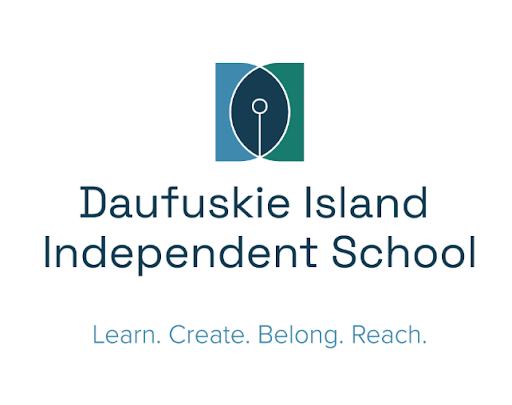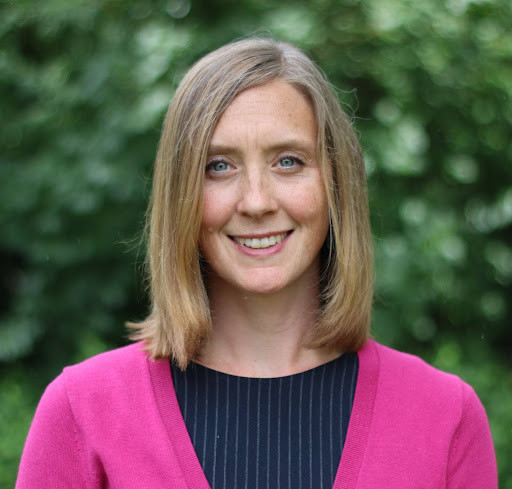Reimagining Rural Education: Daufuskie Island Independent School Is Building More Than a Middle School

A unique and rigorous middle school experience is pivotal. These years are formative both academically and developmentally, and mark a time when students begin to shape their identity, cultivate independence, and seek relevance in the world around them. However, for students in remote or rural areas, middle school can become a logistical burden rather than a transformational opportunity. Daufuskie Island Independent School (DIIS) has emerged to rewrite this narrative.
Located on Daufuskie Island, where access to the mainland involves a boat ride and a patchwork of travel methods, DIIS was born out of necessity. For decades, island families faced a difficult situation: send their children on a grueling, hours-long commute to a mainland school with lackluster academic outcomes, or, in recent years, settle for inconsistent and isolating online instruction.
"The options at their disposal far from met the needs of the community or the developmental needs of its youth. The education gap here wasn't just wide – it was structural, systemic, and isolating," DIIS co-founder, Kimberly Lundgren, remarks.
DIIS began as a community lifeline. Before the school opened its doors, parents, educators, and island residents organized informal Friday sessions where middle school students could gather, receive tutoring, and learn about art, dance, and more from volunteer community instructors. These sessions, though modest, showed that the desire for quality education on the island was strong, and the community was ready to rally behind it.
During the same period, Lundgren, a seasoned advocate for education access with a personal motivation, found herself unexpectedly moving to Daufuskie. With a background in international development and over a decade working on issues of educational equity, she saw the island's predicament as a challenge and a calling.
Having raised children in various schools, from elite international institutions in Asia to struggling public districts in the United States, Lundgren had long understood the disparity between what children need and what many systems provide. Her own educational experiences and observations while living overseas instilled in her a conviction that true educational equity begins by ensuring every child has access to consistent, engaging, and rigorous learning in their community.
Her experience in Asia, witnessing families sacrifice everything to send children to schools far from home, illuminated the emotional and developmental cost of removing young children from secure, familial environments just for a shot at learning. That same dynamic, surprisingly, was playing out in her backyard, on a tiny island in South Carolina.
The timing was serendipitous. In 2022, a reconnection with long-time friend and fellow educator Justin Dacanay (DIIS co-founder) added the final piece of the puzzle. While Lundgren brought the parental perspective and community organizing instincts, Dacanay brought educational vision and curriculum expertise. Together, and with the help of community organizer Erin Quinn (DIIS co-founding board member and Treasurer), they formed a leadership team driven by urgency and long-term vision.
The founding team never meant DIIS to be a stopgap. They wanted to reimagine the solution. In less than a year from its initial planning, the school opened its doors in 2023. Built on a community-supported model, it utilizes the strengths of Daufuskie's residents, the retirees, artists, scientists, and professionals, who teach electives and offer mentorship alongside credentialed educators. The island itself becomes a classroom, with students engaging in inquiry-based learning rooted in real-world challenges and the natural beauty surrounding them.

As it matured, DIIS expanded its vision beyond the island. A seven-minute water taxi ride from Hilton Head has created a literal and symbolic bridge between the school and potential learners beyond the island's shores. In many ways, DIIS has become an example for how rural communities everywhere rethink their approach to education.
Essentially, DIIS aims to address a global gap. Education deserts aren't limited to the developing world. Across the US, and especially in remote locations, the educational infrastructure is often thin. The school created a new, scalable model for others to follow. "You don't need massive funding or sprawling campuses to deliver exceptional education. You need creativity, community, and a belief that every child deserves a top-quality and inspiring education," Lundgren states.
DIIS has then leaned into mission-aligned programming, community partnerships, and grassroots fundraising. Every decision has been guided by sustainability and scalability. As the school works toward securing a permanent facility, it continues to develop educational programs that can serve enrolled students and the broader community.
DIIS' impact is visible in the confident, capable students it sends out into the world. Even in its earliest years, DIIS has demonstrated that a small school can deliver outsized results. From robust academic growth to meaningful personal development, the school's environment fosters deep, lasting change. Graduates leave with honors-level high school coursework already under their belts and, more importantly, with a strong sense of self.
One student reflected, "The main way I've grown in my two years here is in resilience. I've been pushing through when it gets hard. That's something I didn't do before." Parents and donors consistently point to the school's culture of growth, belonging, and transformation. "Watching him develop into a young man who not only strives to better himself but also uses his growth to support and uplift those around him has been one of the most rewarding parts of these past two years," said one parent.
Ultimately, Daufuskie Island Independent School shows what happens when one creates a model of education that is rigorous, relevant, and rooted in place, designed to empower the students and the ecosystems that support them. DIIS began as a grassroots effort on a small, hard-to-reach island. Today, it stands as a case study for rural education reform, not just in America, but globally.
© Copyright IBTimes 2024. All rights reserved.





















